On June 28, 2025, Thailand shut down five major foreign peer-to-peer (P2P) cryptocurrency platforms overnight. Bybit, OKX, CoinEx, 1000X, and XT.COM were all blocked from accessing Thai users. No warning. No grace period. Just a hard stop. This wasn’t a technical glitch. It was a deliberate, government-ordered move - and it changed everything for crypto traders in Thailand.
Why Thailand Took Such a Strong Stance
Thailand didn’t wake up one day and decide to ban foreign crypto platforms out of nowhere. The move was the result of a months-long crackdown fueled by rising cases of online fraud, money laundering, and investor losses tied to unregulated platforms. The Thai Securities and Exchange Commission (SEC) saw foreign P2P exchanges as legal loopholes - places where scammers could operate without accountability, Thai users could lose everything, and authorities had no power to trace funds. The key legal tool behind the ban was the Royal Decree on the Operation of Digital Asset Businesses (No. 2), B.E. 2568 (2025). It made one thing crystal clear: any foreign crypto platform targeting Thai users must get licensed by the SEC. No license? No access. No exceptions. To enforce this, the Ministry of Digital Economy and Society (MDES) was given sweeping powers. They could block websites and apps without needing a court order. That’s rare. Most countries require judicial approval before shutting down platforms. Thailand skipped that step to act faster - and it worked. Within hours of the June 28 deadline, those five platforms were unreachable from Thai IP addresses.Who Got Hit and What Happened to Their Users
The five platforms banned weren’t random. They were among the most popular with Thai traders. Bybit and OKX alone had millions of users in Southeast Asia. Many Thais used them because they offered lower fees, more coin options, and better liquidity than local exchanges. The SEC gave users a one-month notice - from May 29 to June 28 - to withdraw their funds. That sounds fair, right? Not for everyone. Thousands of users reported issues: withdrawal limits, delayed processing, and system crashes as everyone tried to move their assets at once. Some lost access to their wallets for days. Others found their funds stuck because the platforms didn’t have enough Thai baht liquidity to process all withdrawals. The SEC didn’t just shut down exchanges - they also warned banks, telecom companies, and social media platforms to stop helping them. If a bank processed payments to an unlicensed crypto site, it could be held legally responsible. Same with messaging apps like Line or Telegram if they were used to coordinate scams. This created a domino effect: even indirect support became risky.What’s Legal Now - and What’s Not
Crypto isn’t illegal in Thailand. It’s just tightly controlled. You can still trade digital assets - but only through exchanges licensed by the Thai SEC. As of October 2025, there are only six licensed platforms operating in the country: Bitkub, Zipmex, DigiFinex, Satang Pro, Binance Thailand (operating under a local entity), and Coinone Thailand. These licensed exchanges follow strict rules: full KYC (know-your-customer), AML (anti-money laundering) checks, daily reporting to regulators, and mandatory insurance for user funds. They can’t list unvetted tokens. They can’t offer leveraged trading without extra warnings. And they can’t accept deposits from unregistered users. The result? A much safer but much smaller market. Trading volumes dropped by nearly 60% in the three months after the ban. But fraud reports also fell by 78%, according to MDES data. For many ordinary Thais, that trade-off made sense.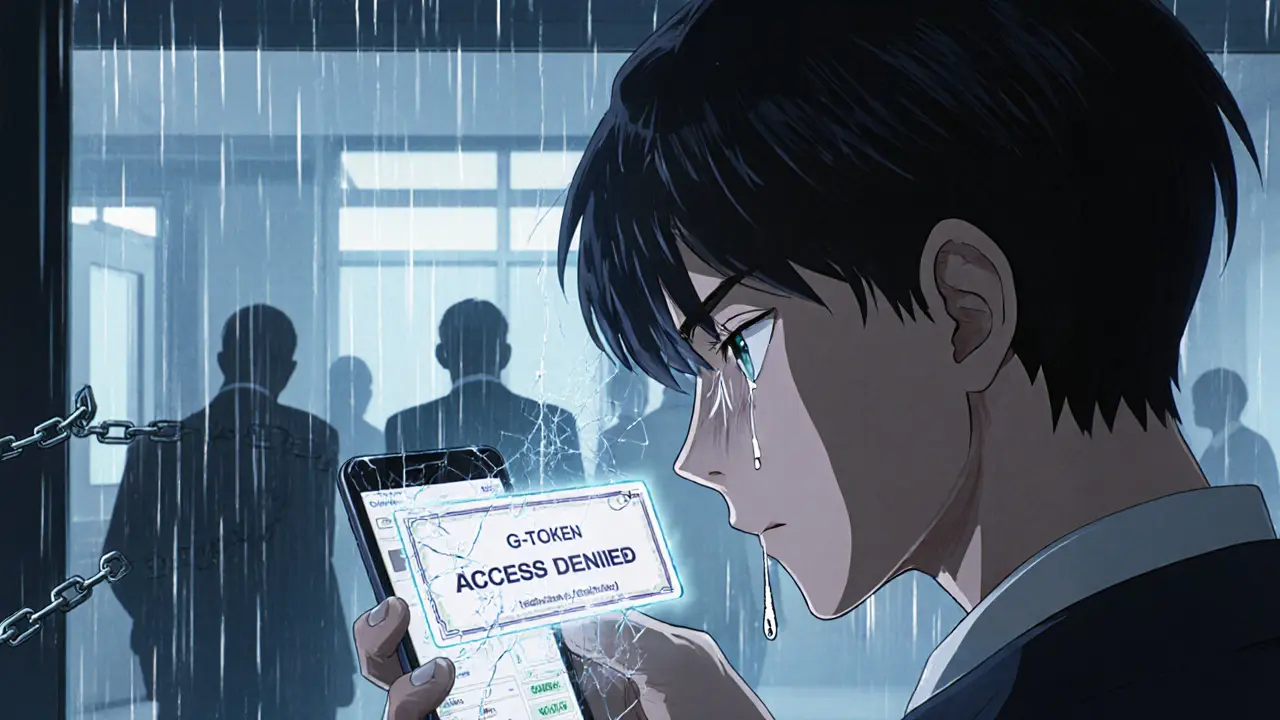
The Hidden Cost: Business and Cross-Border Payments
The ban didn’t just affect retail traders. It hit businesses too. Thai companies that used crypto for international payments - like exporters sending funds to suppliers in India or Vietnam - suddenly couldn’t use their usual P2P platforms. They had to route everything through licensed Thai exchanges, which added layers of paperwork, delays, and fees. Imagine a Thai textile factory sending $50,000 to a supplier in Mumbai. Before June 2025, they could send USDT directly via Bybit. Now, they have to convert THB to USDT on Bitkub, wait for the transfer to clear, then have the supplier convert it back on their end. That’s two sets of KYC, two sets of fees, and a 24-48 hour delay. Many small businesses just gave up on crypto payments altogether. Experts call this the “regulatory friction effect.” Thailand didn’t just ban foreign platforms - it forced all crypto activity through a single, tightly controlled gate. That’s great for oversight. Terrible for efficiency.What Thailand Is Doing Right - Even Amid the Ban
Here’s the twist: Thailand isn’t anti-crypto. It’s anti-unregulated-crypto. While cracking down on foreign platforms, the government quietly pushed forward its own blockchain agenda. On May 13, 2025, Thailand announced plans to issue up to 5 billion baht ($150 million) in digital government bonds called “G Tokens.” These aren’t speculative tokens. They’re blockchain-based securities tied to real public debt. The goal? To make bond trading faster, cheaper, and more transparent. The SEC is also working with securities firms to launch a blockchain-based trading platform for stocks and ETFs. This isn’t just about crypto. It’s about modernizing Thailand’s entire financial infrastructure. The message is clear: We don’t want your offshore exchanges. But we’re building our own digital future - and we want you to be part of it.
What Users Are Saying - And Why It Matters
Social media exploded after the ban. On Reddit, Thai users posted screenshots of frozen wallets and angry messages to customer support. On Twitter, hashtags like #ThailandCryptoBan and #GiveUsOurCrypto trended for weeks. Some users praised the move. “I lost 200,000 baht to a fake exchange last year,” wrote one user. “I’m glad they finally cleaned house.” Others were furious. “I had $15,000 in OKX. I couldn’t withdraw in time. Now I’m stuck,” said another. “They didn’t give us a real chance.” The truth? The ban exposed a deep gap between regulation and user readiness. The government acted fast. Most users didn’t. There was no public education campaign. No step-by-step guides on how to move assets safely. No emergency support line. That’s a failure of implementation - not intent.What Comes Next for Thailand’s Crypto Scene
As of October 2025, the ban is holding. No court has overturned it. No foreign platform has returned. The licensed exchanges are growing - slowly. Bitkub’s user base increased by 32% in the last four months, mostly from former users of the blocked platforms. The real test will be whether Thailand can keep innovation alive under tight control. Can local exchanges offer the same variety and speed as global ones? Can the government issue G Tokens without creating new risks? Regional neighbors are watching closely. Vietnam, Indonesia, and the Philippines are all considering similar moves. Thailand’s model - ban foreign platforms, license local ones, build government blockchain tools - might become the blueprint for Southeast Asia. But there’s one big question left: Is control worth the cost? For some, yes. For others, the freedom to trade globally matters more than safety. Thailand chose safety. Now the world is watching to see if it was the right call.Are foreign crypto platforms still accessible in Thailand?
No. As of June 28, 2025, all unlicensed foreign P2P crypto platforms - including Bybit, OKX, CoinEx, 1000X, and XT.COM - are blocked from Thai internet traffic. The Ministry of Digital Economy and Society (MDES) has the legal authority to block these sites without court approval. Attempting to access them via VPNs remains technically possible but violates Thai law and exposes users to legal risk.
Can I still trade cryptocurrency in Thailand?
Yes, but only through exchanges licensed by the Thai SEC. As of October 2025, only six platforms are legally allowed to operate: Bitkub, Zipmex, DigiFinex, Satang Pro, Binance Thailand, and Coinone Thailand. These platforms require full KYC verification, follow strict AML rules, and report all transactions to regulators. Trading on unlicensed platforms is illegal and carries criminal penalties.
What happens if I still use a banned platform after the ban?
If you’re just using a banned platform as a trader, you won’t be arrested - but you have no legal protection. If your funds are stolen or the platform disappears, you can’t file a complaint with Thai authorities. However, if you operate or promote an unlicensed platform in Thailand - even as a local agent - you face up to three years in prison and a fine of 300,000 baht (around $8,700 USD). The law targets operators, not casual users.
Why did Thailand block these specific five platforms?
These five - Bybit, OKX, CoinEx, 1000X, and XT.COM - were targeted because they were among the most popular with Thai users and operated without any SEC license. The SEC determined they met the legal definition of a “digital asset business” under Thailand’s Digital Asset Business Act. Their lack of local registration, absence of Thai-based compliance teams, and failure to report suspicious activity made them clear violations of the law.
Is cryptocurrency legal tender in Thailand?
No. Cryptocurrency is not legal tender in Thailand. It is classified as a “digital asset” under Thai law, meaning it can be bought, sold, and traded - but not used to pay for goods and services like the Thai baht. Only licensed exchanges can facilitate these transactions, and all trades must be recorded and reported to the SEC.
What’s the difference between a licensed and unlicensed crypto platform in Thailand?
A licensed platform must register with the Thai SEC, implement full KYC and AML checks, maintain insurance for user funds, report all transactions daily, and comply with Thai tax and reporting laws. Unlicensed platforms have none of these obligations. They can operate anonymously, accept funds from anyone, and disappear overnight without accountability. The ban removed all unlicensed platforms to protect users from fraud and financial loss.
Will Thailand allow foreign crypto platforms to return in the future?
Possibly - but only if they apply for and receive a Thai license. The door isn’t closed. The SEC has stated it welcomes foreign operators who are willing to comply with local laws. However, licensing requires setting up a legal entity in Thailand, hiring local compliance staff, and submitting to full regulatory oversight. So far, no foreign exchange has successfully applied under the new rules.
How does Thailand’s ban compare to other countries in Southeast Asia?
Thailand’s approach is among the strictest in the region. While countries like Vietnam and Indonesia have also cracked down on unlicensed exchanges, none have gone as far as Thailand in blocking platforms without court orders or mandating joint liability on banks and telecoms. Singapore and Malaysia allow foreign platforms to operate under strict licensing - but Thailand chose to draw a hard line: no local presence, no access. This makes Thailand a unique case in Southeast Asia’s crypto regulatory landscape.


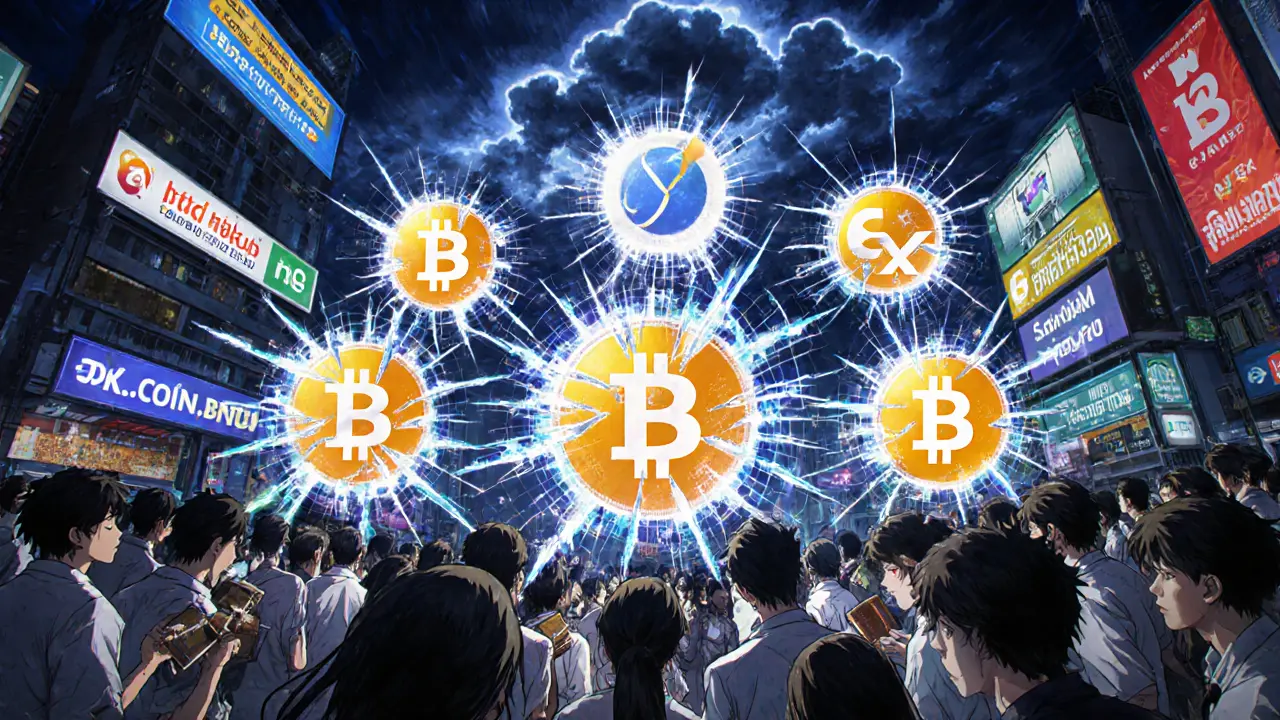
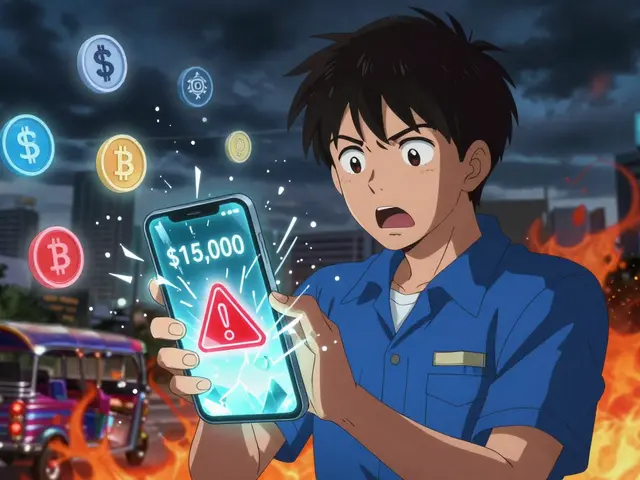
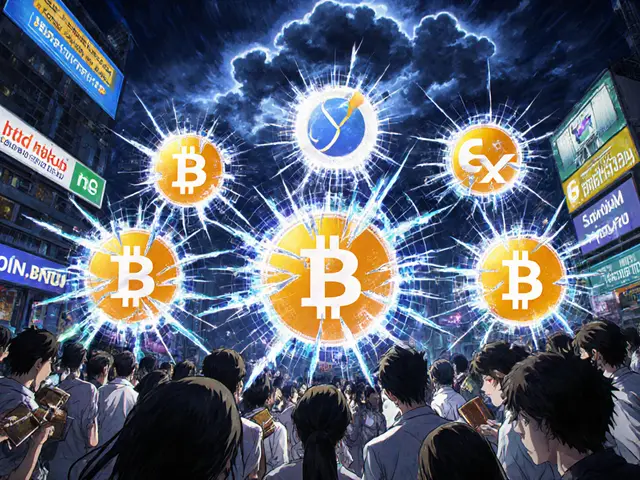


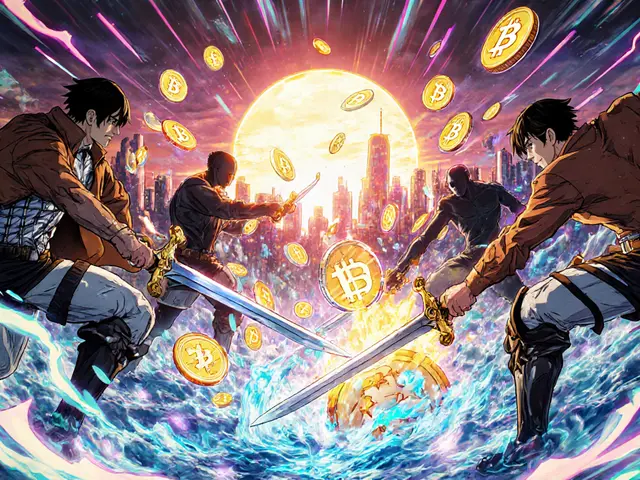


Comments (27)
Benjamin Jackson
November 10, 2025 AT 10:29 AMIt’s wild how Thailand just pulled the plug like that-no warning, no fuss. I get the fraud concerns, but man, imagine being a trader who had funds stuck because the withdrawal system crashed. That’s not regulation, that’s a digital version of locking the bank doors during a run.
Still, I respect the intent. If you’re going to let crypto in, you gotta make sure it doesn’t turn into a Wild West carnival. The licensed exchanges might be slower, but at least you know who’s watching the vault.
And honestly? The G Tokens idea is genius. Real blockchain for real public finance? That’s the future. Not offshore P2P gambling with leverage.
Thailand didn’t kill crypto. They just kicked out the con artists. Sometimes that’s the only way to save something worth keeping.
Kathy Ruff
November 11, 2025 AT 16:54 PMPeople are acting like this is some dystopian crackdown, but the data speaks for itself: fraud reports dropped 78%. That’s not a side effect-that’s the goal.
Before, you had grandma investing her pension in a token called ‘DogeMoonRush’ because a Telegram bot told her it’d 100x. Now? She’s on Bitkub, with KYC, insurance, and real customer service.
It’s not perfect, but it’s safer. And safety shouldn’t be a dirty word in finance.
Ryan Inouye
November 12, 2025 AT 13:22 PMOf course Thailand did this. They’re just jealous they can’t control the internet like they control their temples. ‘No foreign platform’? Ha. That’s not regulation-that’s digital isolationism. You think this stops people from trading? No. It just pushes it to the dark web and Telegram bots with no KYC at all.
And now the government gets to decide who’s ‘legit’? Sounds like a license to corrupt. Next they’ll be charging bribes for exchange licenses.
Freedom to trade is freedom to fail. And Thailand just took that away in the name of ‘protection’.
Cierra Ivery
November 14, 2025 AT 00:07 AMWait-so you’re telling me… that people didn’t read the notice? The SEC gave a full month. A MONTH. And still, people waited until the last second? That’s not the government’s fault. That’s user incompetence. And now they’re crying about it on Twitter like it’s a personal betrayal?
Also, ‘I had $15,000 stuck’? Bro, you were using a foreign P2P platform with zero legal protection. You knew the risks. You just didn’t care until it was too late.
And now you want sympathy? Get a grip.
Also, VPNs are still working. So you’re not ‘stuck’-you’re just lazy.
And don’t even get me started on the ‘regulatory friction’ nonsense. If your business can’t handle a 48-hour delay to comply with the law, maybe you shouldn’t be using crypto at all.
Veeramani maran
November 15, 2025 AT 02:18 AMbro i live in india and we got same problem here. crypto is wild here. no rules. people lose money daily. i think thailand is smart. i dont care if its slow. i care if i get scammed. bitkub is fine. i moved my funds. no drama.
but yeah, small biz hurt. i know guy who sold silk to vietnam. now he wait 2 days for transfer. sucks. but better than losing everything to fake exchange. i think its worth it.
thailand win. others will follow. trust me.
Janna Preston
November 16, 2025 AT 10:43 AMI’m confused-why does everyone assume this is about banning crypto? It’s not. It’s about banning anonymity. If you’re doing something legal, why hide behind offshore platforms? Why not just use Bitkub? It’s easier now, honestly.
And the G Tokens thing? That’s actually exciting. I didn’t realize Thailand was moving into blockchain-based public finance. That’s way more innovative than just letting random exchanges run wild.
It’s not anti-crypto. It’s pro-accountability. And that’s not a bad thing.
Pranjali Dattatraya Upadhye
November 17, 2025 AT 06:10 AMOMG I just cried reading this. I’m from India and we’re so behind. Everyone here thinks crypto = get rich quick. I’ve seen friends lose their rent money to fake coins. I’ve seen parents invest their life savings because a YouTube influencer said ‘moon or bust.’
Thailand didn’t ban crypto-they banned chaos. And honestly? I’m jealous. We need this. We need a government that says ‘no more.’ Not because they hate tech, but because they care about people.
Also, the G Tokens? That’s the future. I want my tax money to be on a blockchain, not in some corrupt bank vault.
Thailand, you’re doing God’s work. Please don’t backtrack.
Cydney Proctor
November 17, 2025 AT 19:08 PMOh, so now we’re supposed to applaud Thailand for playing corporate nanny? Let me get this straight: you’re fine with the state deciding which five exchanges are ‘good enough’ to operate, but you’re outraged when foreign ones get blocked?
And let’s not pretend Bitkub is some saintly institution. It’s a Thai company with political connections. Who’s auditing them? Who’s holding them accountable? The same regulators who just gave them a monopoly?
This isn’t regulation. It’s crony capitalism dressed up in blockchain pajamas.
And don’t even get me started on the ‘G Tokens.’ That’s just digital debt with a fancy name. The government will use it to borrow more, then blame ‘market volatility’ when it fails.
Thailand didn’t protect its citizens. It just replaced one cartel with another.
Colin Byrne
November 19, 2025 AT 08:13 AMThe notion that Thailand’s actions constitute a ‘crackdown’ is a mischaracterization. What we are witnessing is a sovereign state exercising its legitimate authority to regulate financial instruments that pose systemic risk to its domestic economy.
Foreign P2P platforms, by virtue of their jurisdictional arbitrage, operated outside the ambit of local financial oversight frameworks, thereby undermining the integrity of the Thai Securities and Exchange Commission’s mandate.
The Royal Decree on the Operation of Digital Asset Businesses (No. 2), B.E. 2568 (2025), was a necessary and proportionate response to a documented surge in untraceable financial transactions, many of which were linked to transnational fraud rings.
Moreover, the enforcement mechanism-direct blocking without judicial intervention-is not unprecedented in digital governance. The EU’s Digital Services Act, for instance, permits rapid takedowns of illegal content. The principle is identical: speed in response to clear and present harm.
It is not a ban on cryptocurrency. It is a ban on unlicensed intermediation. The distinction is fundamental. One may still trade; one may not do so through unregulated conduits.
The 60% drop in trading volume is not a failure-it is a recalibration. The 78% reduction in fraud reports is the metric that matters. Efficiency, in this context, is a luxury that cannot be prioritized over integrity.
Those who lament the ‘regulatory friction’ are, in effect, lamenting the loss of operational convenience. That is not a public good. That is a private preference.
Thailand has demonstrated that financial sovereignty is not antithetical to innovation-it is its necessary precondition.
Meagan Wristen
November 19, 2025 AT 13:44 PMI just want to say thank you to Thailand for doing what no other country in the region has had the courage to do.
I’m an immigrant in the U.S., and I’ve seen how crypto scams destroy families-especially immigrant families who don’t speak English well and are targeted by slick TikTok ads. I know people who lost everything.
Thailand didn’t just protect its citizens. It showed the world that you can have innovation AND safety. You don’t have to choose.
And the G Tokens? That’s the kind of smart, long-term thinking we need more of. Not ‘crypto bro’ nonsense. Real infrastructure.
Let’s stop calling this a ban. Let’s call it a breakthrough.
Kevin Mann
November 21, 2025 AT 06:18 AMOK so imagine this: you’re chilling, scrolling through your phone, and BAM-your entire portfolio is GONE. No warning. No email. Just ‘403 Forbidden’ on your app.
That’s what happened to my buddy. He had $22K in OKX. He thought he had time. He didn’t. Now he’s crying in a Reddit thread asking if he can sue the Thai government. No. You can’t. Because you chose to use an illegal platform.
And now the whole internet is acting like this is some Orwellian nightmare. Bro. It’s 2025. You don’t just run a bank from a server in the Caymans and expect no consequences.
Also, the G Tokens? That’s the real flex. The Thai government is literally building its own blockchain economy. Meanwhile, the rest of us are still arguing about whether Dogecoin is a currency or a meme.
Thailand just won the future. And we’re all just watching.
😭😭😭
andrew seeby
November 22, 2025 AT 15:21 PMLook, I’m not saying I agree with the ban, but I get it. I used Bybit for years. Low fees, fast trades, tons of coins. But I also saw the scams. I saw people lose everything because they trusted a ‘verified’ Telegram group that was just a bot farm.
Thailand didn’t ban crypto. They banned the wild west.
And honestly? I’m kinda impressed. They didn’t just shut it down-they built a better alternative. G Tokens? That’s next-level. That’s not just regulation. That’s vision.
Yeah, it’s slower. Yeah, it’s less exciting. But if you want to keep your money, sometimes you gotta give up the adrenaline.
Kyung-Ran Koh
November 24, 2025 AT 02:24 AMLet’s not romanticize the ‘freedom’ of unregulated crypto. Freedom without accountability is just anarchy-and anarchy benefits the most predatory actors, not the average user.
Thailand’s approach is a textbook example of responsible innovation: protect the public first, then build the infrastructure. The licensed exchanges aren’t perfect, but they’re accountable. They’re insured. They’re audited.
The G Tokens? That’s not a gimmick. That’s the future of sovereign finance. Imagine bonds traded on-chain, with real-time settlement, zero counterparty risk. That’s what Thailand is building.
Other countries are still stuck in the ‘crypto is either illegal or a free-for-all’ binary. Thailand broke that mold.
This isn’t repression. It’s evolution.
John Doe
November 25, 2025 AT 06:42 AMThey didn’t ban foreign platforms because of fraud. They banned them because they’re scared of decentralization.
Think about it: if everyone can trade peer-to-peer, who controls the money? Not the state. Not the banks. Not the politicians.
So they shut it down. Then they create their own ‘licensed’ system-where every transaction is tracked, every wallet linked to your ID, every transfer reported to the Ministry of Digital Economy.
And now they’re pushing ‘G Tokens’-digital bonds that let the government borrow money directly from citizens, with blockchain as the surveillance tool.
This isn’t about protecting people. It’s about total financial control.
They’re not banning scams. They’re banning freedom.
And you’re all cheering?
😂
Rob Ashton
November 25, 2025 AT 18:32 PMThere’s a quiet dignity in Thailand’s approach. They didn’t shout. They didn’t panic. They studied the problem, crafted a precise legal framework, and executed with clarity.
Yes, some users were caught off guard. But the warning period was clear. The alternatives were available. The risks were well-documented.
This isn’t authoritarianism. It’s stewardship.
And the G Tokens? That’s the real story. Thailand isn’t just reacting to crypto. They’re shaping its future-using blockchain not for speculation, but for public good.
Other nations should take notes. Not just on enforcement-but on vision.
Angie Martin-Schwarze
November 27, 2025 AT 04:02 AMso i just tried to send usdt to my friend in thailand and i got an error. i thought it was my wallet. then i read this. oh. so they blocked everything. wow.
i used to use okx for my side hustle. now i have to use bitkub and wait 2 days for every transfer. its so annoying. but i guess its safer? idk.
my cousin lost 5k last year to a fake exchange. maybe this is good? but why no warning? why not let people use vpn? i feel bad for the small businesses.
but also... i dont want to lose money. so maybe its ok? i dont know. 🤷♀️
Becca Robins
November 28, 2025 AT 13:29 PMthailand just made crypto boring. and honestly? i respect it.
no more moon missions. no more 1000x coins. no more ‘trust me bro’ memes.
now you gotta do KYC, wait 2 days, pay fees, and hope bitkub doesn’t glitch.
it’s like going from a drag race to a bus schedule.
but guess what? people aren’t getting scammed anymore.
so yeah. boring is better.
also g tokens? that’s actually cool. 🤖
Hope Aubrey
November 30, 2025 AT 11:48 AMLet me be real: I used to hate Thailand’s crypto rules. But after watching my cousin get scammed out of $18,000 by a fake Bybit clone, I get it.
They didn’t ban crypto. They banned the wolves in sheep’s clothing.
And the G Tokens? That’s not just smart-it’s revolutionary. Imagine if the U.S. government issued bonds on-chain. No middlemen. No delays. Real transparency.
Thailand isn’t behind. They’re ahead.
And the people crying about ‘freedom’? They’re the same ones who lost everything and now want a handout.
Grow up. This isn’t a video game. It’s your life savings.
Whitney Fleras
December 2, 2025 AT 08:14 AMI think this is one of the most balanced crypto regulations I’ve seen. No hysteria. No overreach. Just clear rules, a grace period, and a better alternative.
It’s not perfect-but it’s honest.
Thailand didn’t try to control every person’s choice. They just made sure the system wasn’t rigged.
That’s leadership.
Sunidhi Arakere
December 3, 2025 AT 07:31 AMMy uncle lost money in crypto. He thought it was like stock market. But it was not. Now he use Bitkub. He happy. He say now he sleep well. No fear. This good.
Leo Lanham
December 3, 2025 AT 07:37 AMThailand just turned crypto into a state-run utility. Congrats. You won the prize for Most Boring Financial Revolution Ever.
Now we have to wait 3 days to send money because the government says ‘security.’
Meanwhile, the rest of the world is building DeFi, DAOs, and tokenized real estate.
Thailand? They’re building a digital bank with a side of propaganda.
And you call this progress?
It’s not innovation. It’s digital socialism with a blockchain sticker on it.
Eric von Stackelberg
December 3, 2025 AT 19:36 PMLet’s not ignore the elephant in the room: this ban was coordinated with the U.S. Treasury and the Financial Action Task Force (FATF).
Why? Because Bybit and OKX were being used to launder money from sanctioned Russian oligarchs and North Korean cybercriminals.
Thailand didn’t act alone. They were the tip of a global spear.
The fact that you’re all acting like this is some rogue move by a ‘small country’ is naive.
This was a strategic, multilateral effort to dismantle the shadow financial network that had been operating under the guise of ‘decentralized finance.’
And now you’re mad because your ‘freedom’ to launder was taken away?
Wake up.
Robin Hilton
December 4, 2025 AT 18:15 PMThailand banned foreign crypto platforms? Big deal. I’m from the U.S. and we’ve had worse. Remember the 2018 crypto winter? Or the FTX collapse? People lost billions.
At least Thailand had the guts to act. We’re still letting Binance run wild with zero oversight.
And don’t get me started on the ‘regulatory friction’ nonsense. If your business can’t adapt to legal compliance, you shouldn’t be in finance.
Also, G Tokens? That’s the future. We should be doing that here.
Stop whining. Start adapting.
Alexis Rivera
December 5, 2025 AT 13:42 PMWhat’s fascinating isn’t the ban-it’s what Thailand is building instead.
They’re not just regulating crypto. They’re reimagining finance.
The G Tokens aren’t a gimmick. They’re a prototype for how sovereign nations can issue debt in a way that’s transparent, efficient, and resistant to manipulation.
And they’re doing it without the noise, the hype, the influencers, the rug pulls.
Thailand isn’t trying to be Silicon Valley. They’re trying to be Singapore-except smarter.
This is the quiet revolution. And most people are too busy screaming about freedom to notice.
Grace Huegel
December 6, 2025 AT 15:38 PMJust lost $8,000. Couldn't withdraw in time. Now I'm broke. Thanks, Thailand.
Meagan Wristen
December 7, 2025 AT 20:34 PMThat’s heartbreaking. I’m so sorry. But I want to be clear-this isn’t about blame. It’s about change.
That $8,000? It’s a price paid for a system that was broken. And now, because of what happened, no one else has to lose theirs.
Thailand didn’t get it perfect. But they got the direction right.
And if you’re willing to share your story? That’s how we make it better.
Pranjali Dattatraya Upadhye
December 9, 2025 AT 16:51 PMMy heart goes out to you. I’ve been there. I lost my dad’s medical fund to a fake exchange in 2022. I didn’t know it was illegal. I just saw ‘1000x’ and clicked.
But now? I use Bitkub. I check the SEC website every week. I tell everyone I know: ‘Don’t be like me.’
Your pain isn’t in vain. It’s part of the lesson.
And if you need help navigating the licensed exchanges? I’ll walk you through it. No judgment. Just support.